Understanding the Failure Process of Sulfide-Based All-Solid-State Lithium Batteries via Operando Nuclear Magnetic Resonance Spectroscopy
Primary author: Ziteng Liang (Xiamen University)
Co-Primary author: Yuxuan Xiang (Xiamen University)
Corresponding author: Yong Yang (Xiamen University)
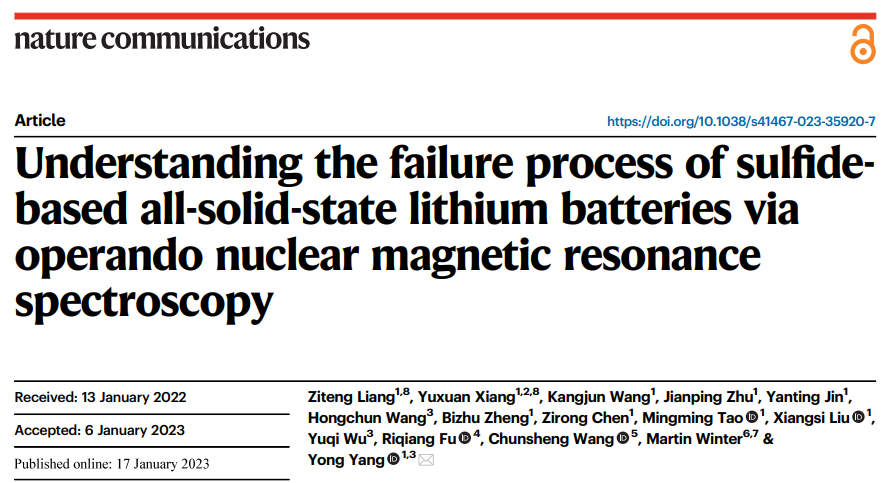
Sulfide-based all-solid-state lithium batteries have attracted significant attention from the industry and academia due to their potential for high energy density and safety. However, in the case of lithium-negative electrode-type all-solid-state lithium batteries, non-active lithium is continuously generated during charge-discharge cycles, resulting in poor cycling performance and limiting their practical applications. Currently, non-active lithium consists of two parts: (1) non-active lithium metal (also known as "dead lithium"), which is caused by uneven lithium dissolution leading to the interruption of the electron-ion pathway, and (2) non-active lithium-containing compounds, which are formed due to interface (electro)chemical side reactions between the lithium metal negative electrode and the solid-state electrolyte. The presence of non-active lithium significantly affects the electrochemical performance of the battery. Therefore, accurately quantifying these two types of non-active lithium during the battery cycling process is crucial for understanding the failure process of all-solid-state lithium batteries.
Based on this, Yong Yang's team from Xiamen University, among others, for the first time utilized in-situ solid-state nuclear magnetic resonance (NMR) technology to analyze the failure mechanism of lithium metal negative electrodes in different sulfide-based all-solid-state lithium batteries. Through quantitative studies of non-active lithium in the system, the formation mechanisms of the two types of dead lithium in all-solid-state batteries were revealed. Additionally, the corrosion issue of the lithium metal negative electrode in all-solid-state lithium batteries was investigated for the first time, elucidating the relationship between the corrosion rate and the morphology of the lithium metal. This work deepens the understanding of the failure mechanism of all-solid-state lithium batteries and provides important guidance for further development. The research was published in the top international journal Nature Communications, with Ziteng Liang and Yuxuan Xiang as co-primary authors.
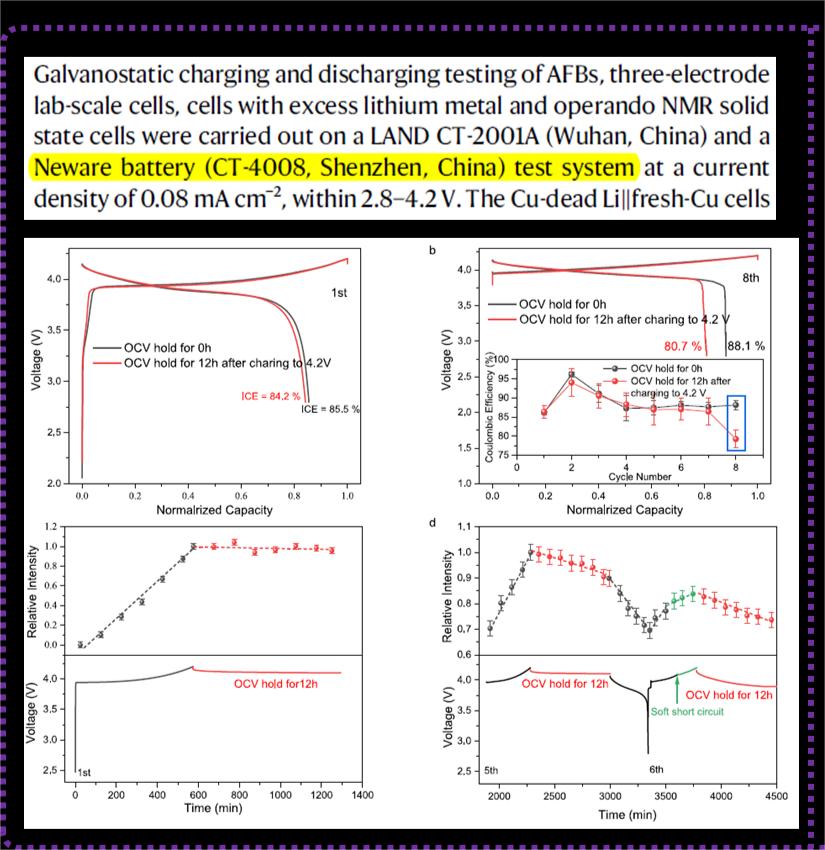
In the article, it can be seen that some of the electrochemical performance was tested using NEWARE's battery testing equipment (CT-4008). This equipment is a star product in the CT-4000 series, which not only includes testing devices for button batteries but also features a testing cabinet for square pouch batteries and other related requirements. The testing cabinet offers various charge-discharge modes to meet your testing needs with just one click.
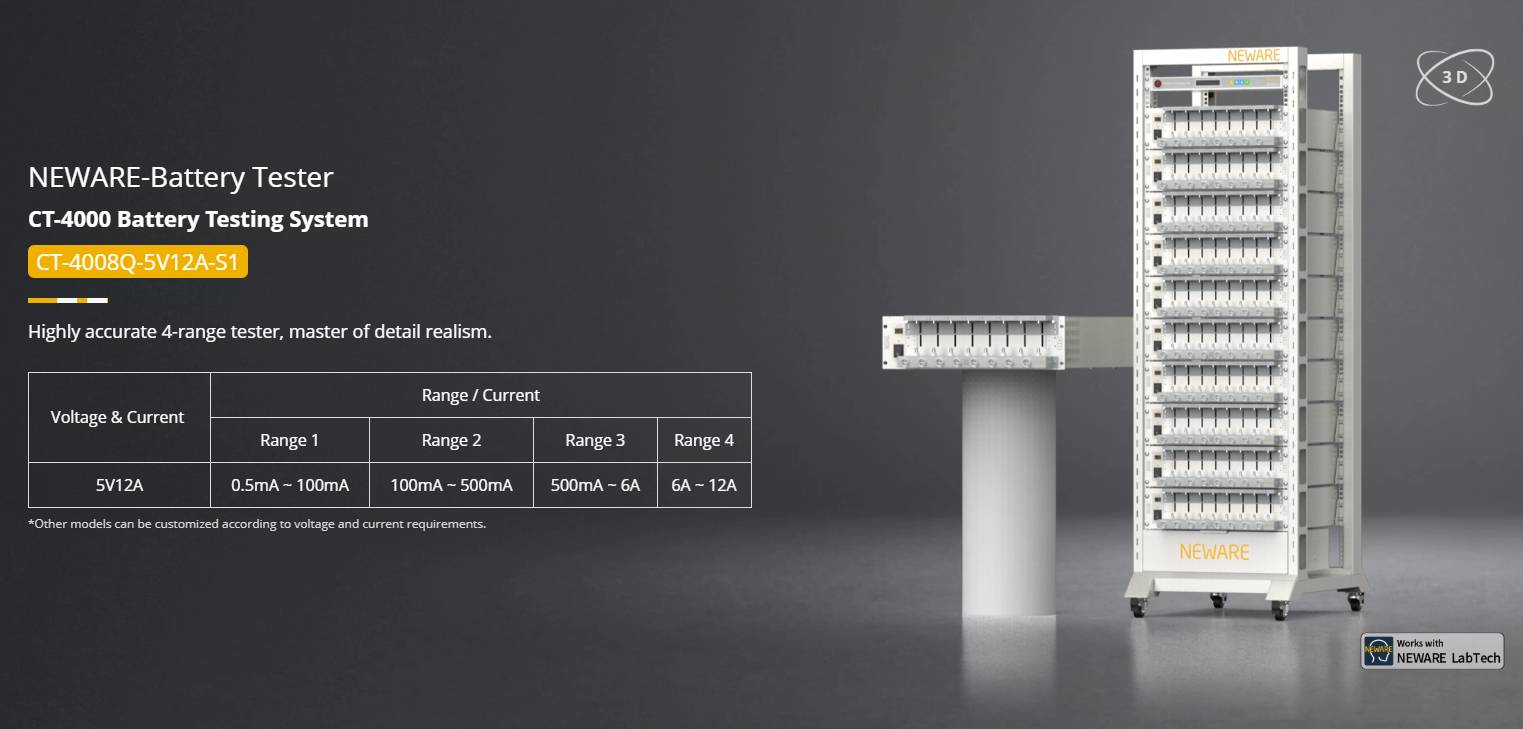
NEWARE battery testing system, model CT-4008Q-5V12A-S1, offers a range of current selections from 0.5mA to 12A, allowing for precise control in measuring small currents within a narrow range. The system is designed for stable performance to ensure accurate and reliable test data. It features a modular design with 8 independent channels per unit, capable of individual data acquisition and programming, with support for up to 254 editable lines.
NEWARE battery tester is equipped with integrated probes for cylindrical batteries, which can be adjusted in height to fit various sizes of cylindrical batteries. It is capable of conducting various types of battery tests, including cycle life testing, rate charging/discharging testing, pulse simulation testing, GITT (Galvanostatic intermittent titration technique) testing, and DCIR (Direct Current Interruption Resistance) testing. It also supports advanced battery testing with the ability to perform dQ/dV differential capacity curve analysis.
Additionally, the NEWARE battery tester is complemented by its fully functional battery test system software. The software offers a variety of work-step settings, recording, and data storage capabilities to meet a wide range of testing needs.
NEWARE is dedicated to providing support for global battery manufacturers, electric vehicle producers, energy storage battery manufacturers, as well as enterprises, national quality inspection departments, universities, and research institutions. For any of your battery testing needs, we can provide a special customized test solution according to your requirements.
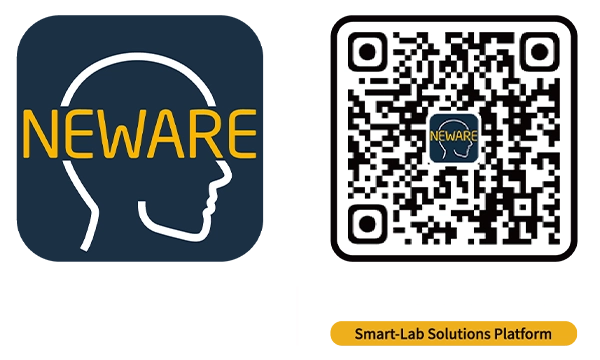

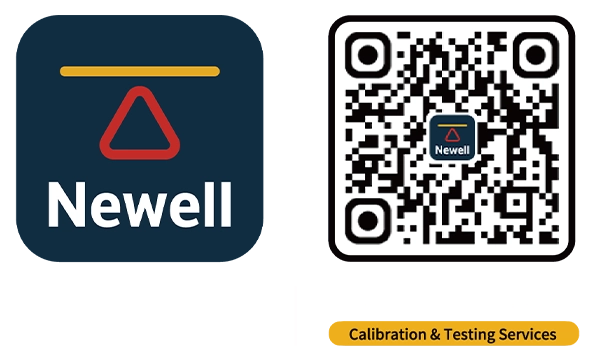
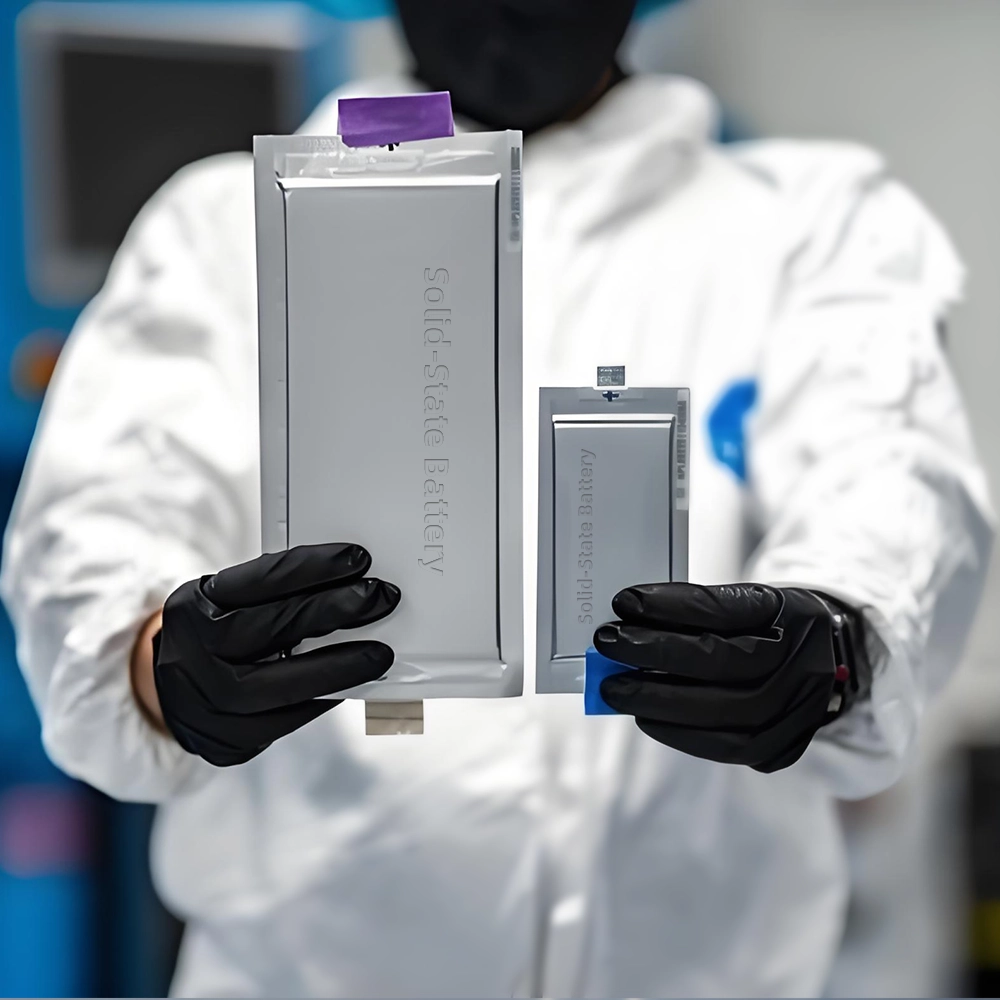
The lab focuses on solid-state battery research to overcome traditional lithium batteries' safety and energy density issues, supporting environmental sustainability. It develops innovative solid-state electrolytes, refines electrode materials, and investigates ion transfer and interface stability to revolutionize battery technology.
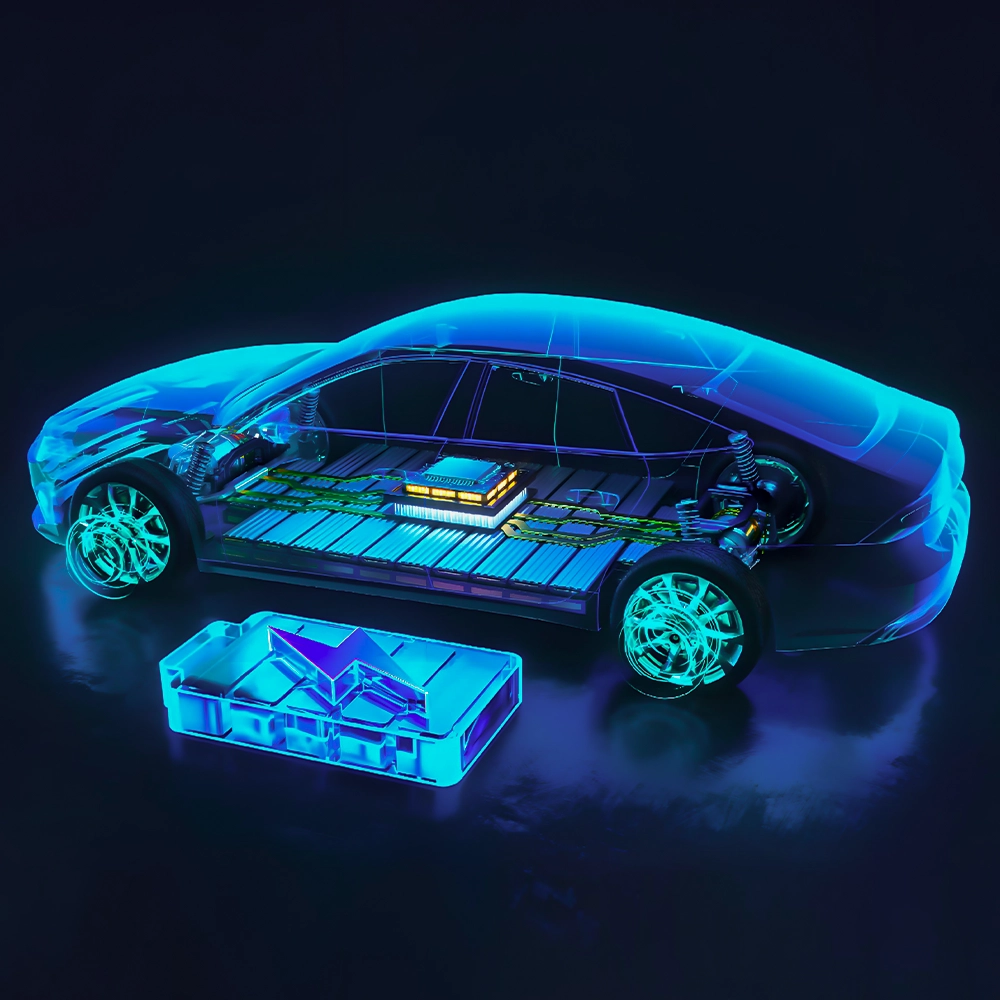
The electric vehicle battery industry is rapidly developing, focusing on technological innovation, market competition, and sustainability. Research hotspots include solid-state batteries, new types of electrolytes, BMS optimization, and recycling technologies. The environmental adaptability, safety, and economic viability of batteries are key research areas, and the industry is expected to undergo more innovation and transformation.
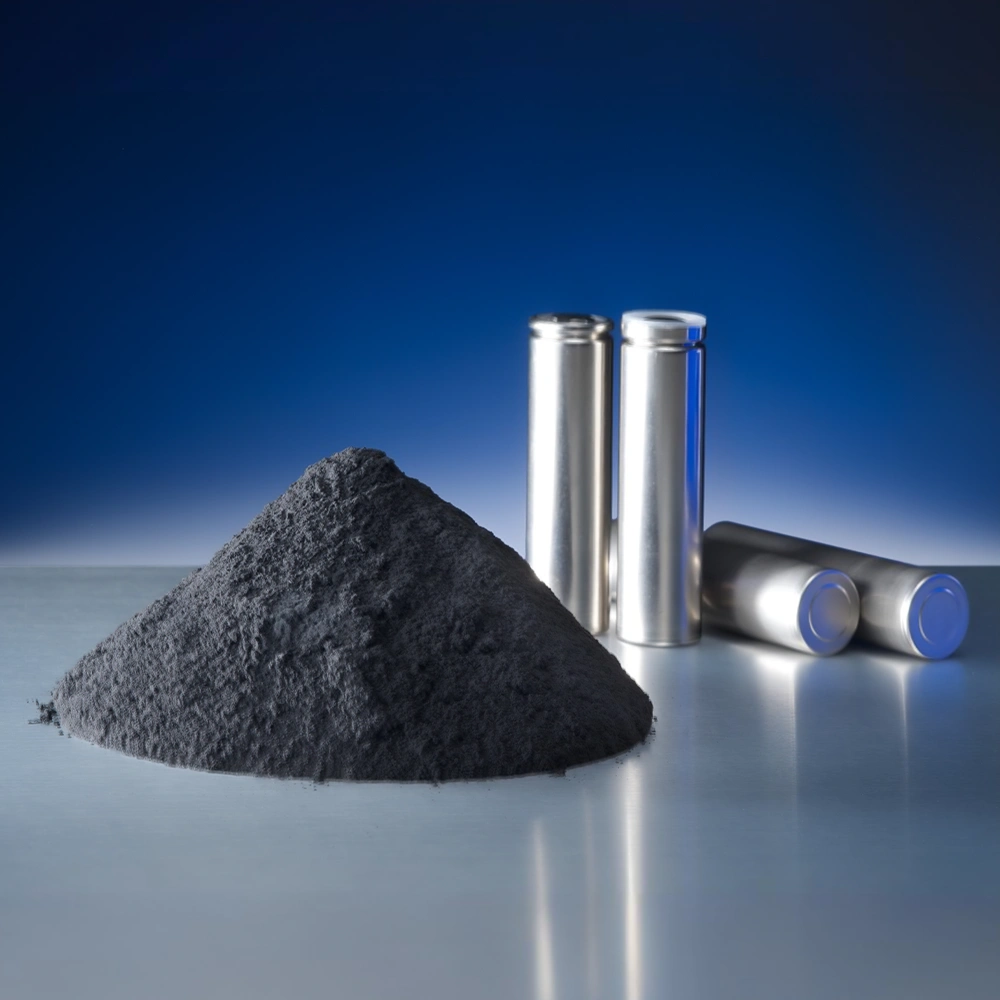
We specialize in battery preparation technology research, focusing on overcoming existing energy storage challenges by innovating in electrode materials, battery chemistry, and manufacturing processes to improve performance, enhance safety, and reduce costs. Sustainability and recycling technologies for batteries are also emphasized to mitigate environmental impacts and foster the growth of green energy.